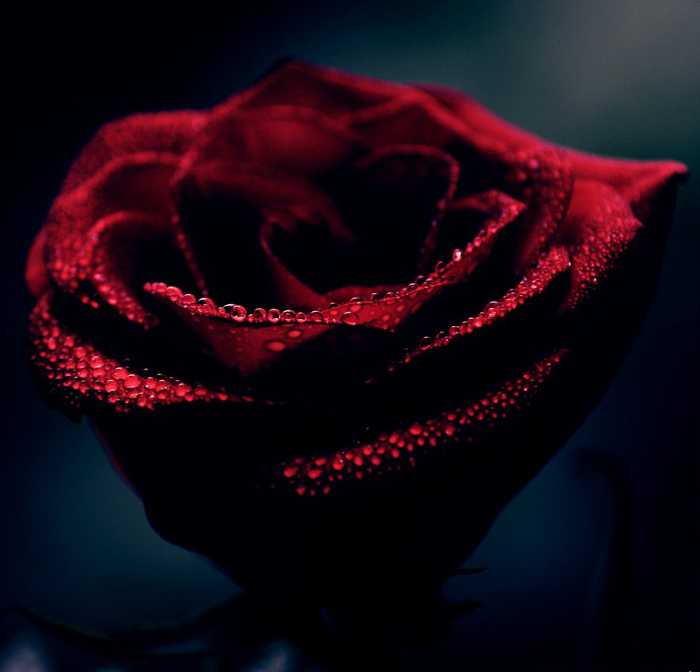FWP:
As so often is the case, we can put the lines together in several ways. There's definitely enjambment between them. The versatility of kih works powerfully; for more about it, see {13,6}. Does the first line result from the second line (the thought of wounds causes the speaker to go with such joy), or does the first line cause the second line (he goes with such joy that he sees the roses of the thought of wounds), or do the two lines simply reflect simultaneous events, so that kih means 'while' (he goes with great joy, and also his gaze is full of roses). As so often, we're left to decide for ourselves.
Wounds are like roses because they are blood-red, vital, beautiful to the lover's eye-- they are both means and signs of progress on the road toward the (mystically-inclined) lover's God/death/beloved. The execution-ground is the place of the final, ultimate wound, and so is to be approached with a unique joy.
In the ghazal world, a gardener gathers roses by picking up the hem of his garment and holding it in one hand, thus making a kind of pouch that he then fills with flowers. This is the basic 'objective correlative' of the lover's feelings. But what about 'the garment-hem of the gaze'? On one reading of the i.zaafat , the gaze is itself a garment-hem; on another reading, the gaze possesses a garment-hem. In either case, the connection is not grounded in any apparent physical similarities. It is much more 'willed' and hypothetical than, say, the conventional description of the gaze (of the beloved) as an arrow.
In either case, we know that this garment-hem is pur-gul , 'rose-filled'. But what kind of roses are these? The flexibility of se permits;xayaal-e za;xm se to mean either that the thought of wounds itself has assumed a rose-like form ('filled with the roses of the thought of wounds'), or that it has merely been a causative agent ('filled with roses because of the thought of wounds').
We are dealing with with several possible degrees and kinds of abstraction here, and they form a fluctuating array that is part of the pleasure of the verse. How real are the roses? Are they caused by, or do they cause, the journey to the execution-ground? Are they roses of thought (and how real are these, anyway?), or are they roses that are merely created (at one remove) by thought? Apparently they are real enough to be visible not just to the mind but to the 'gaze' as well. But if they merely fill the 'garment-hem' of the gaze, doesn't that degree of abstraction place them at a further remove from reality? (And for that matter, in such an uncertain context, how real is the trip to the execution-ground itself?)
Needless to say, the point and the pleasure lie in the undecidability. The only thing in the verse that feels unquestionably real is-- and how appropriately!-- the 'thought'.
Compare {17,5}, which expresses
the same theme through
a far more radically memorable image.

Nazm:
That is, it's clear that he's given for a wound the simile of a rose. (41)
== Nazm page 41